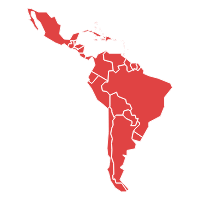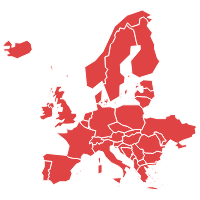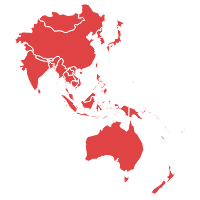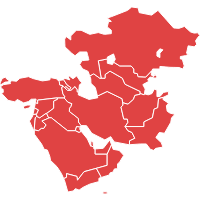- Immunotherapy
- Radiotherapy
- Chemotherapy
- Others
Urothelial Carcinoma Treatment Market size was valued at USD 3.2 billion in 2022 and is poised to grow at a CAGR of 19.10% from 2023-2029. Urothelial carcinoma is also called transitional cell carcinoma. Urothelial carcinoma is a type of cancer that occurs in the urinary system and it is the most common type of bladder cancer of the ureter, urachus, and urethra. Urothelial cell carcinoma starts from the transitional epithelium. Potential signs of recognizing urothelial carcinoma include blood in urine, persistent back pain, and painful urination. Generally, urothelial cell carcinoma is diagnosed using blood tests and scanning. Treatment may include anticancer drugs, antibacterials to reduce or stop the growth of cancer cells, and other treatments such as radiotherapy or nephroureterectomy are indicated. Global urothelial carcinoma treatment market growth is driven by the increase in the global prevalence rate of bladder cancer.
According to World Cancer Research Fund International, bladder cancer is the ninth most common cancer in the world, and in the year 2012 - 430,000 new cases were diagnosed. The market has many large players and actively developing and launching new products related to urothelial carcinoma treatment. For instance, in March 2017, Bavarian Nordic A/S collaborated with F. Hoffman-La Roche Ltd to evaluate the Tecentriq and CV301 drugs in urothelial cancer treatment. Furthermore, promising pipeline drugs for the treatment of urothelial carcinoma such as B-701 (in phase 2 clinical trials by BioClin Therapeutics, and FGFR-3 Antibody (By Eli Lilly and Company in phase 1 clinical trials) are expected to boost future revenue forecasts.
Urothelial Carcinoma Treatment Market Summary
Study Period
2024-2030
Base Year
2023
CAGR
19.1%
Largest Market
North America
Fastest Growing Market
North America
Urothelial Carcinoma Treatment Market Dynamics
Urothelial carcinoma treatment market is driven by the increase in global prevalence of the bladder cancer and emergence of potential diagnostics for identifying bladder cancer. Furthermore, increase funding for R&D activities to develop new cancer therapies and growing awareness regarding early diagnosis of cancer as a result of awareness programs or other initiatives by government and non-government organizations are expected to boost the urothelial carcinoma treatment market over the forecast period. However, high cost of R&D for development of new drugs and presence of generic drugs in the market are expected to hamper the market revenue growth during the forecast period.
Key Features of the Reports
- The urothelial carcinoma treatment market report provides granular level information about the market size, regional market share, historic market (2018-2022), and forecast (2023-2029)
- The report covers in-detail insights about the competitor’s overview, company share analysis, key market developments, and key strategies
- The report outlines drivers, restraints, unmet needs, and trends that are currently affecting the market
- The report tracks recent innovations, key developments, and start-up details that are actively working in the market
- The report provides a plethora of information about market entry strategies, regulatory framework, and reimbursement scenario

Urothelial Carcinoma Treatment Market Segmentation
By Treatment
By Distribution Channel
- Hospital Pharmacies
- Retail Pharmacies
- Others
By Region
- North America
- Europe
- Asia-Pacific
- Latin America
- Middle East and Africa (MEA)
Frequently Asked Questions
The Urothelial carcinoma treatment market size was valued at USD 3.2 billion in 2022
The report covers the five regions and 15+ countries market data: North America (United States, Canada), Europe (Germany, France, Italy, Spain, and United Kingdom (UK), Asia Pacific (China, India, Japan, Australia & New Zealand), Latin America (Brazil, Mexico, Argentina) and Middle East and Africa (Saudi Arabia, United Arab Emirates, South Africa).
The urothelial carcinoma treatment market key players are: GlaxoSmithKline plc (U.K.), Genentech, Inc. (U.S.), Novartis AG (Switzerland), Dendreon (U.S.), Merck KGaA (Germany)
| 1.Executive Summary |
| 2.Global Urothelial Carcinoma Treatment Market Introduction |
| 2.1.Global Urothelial Carcinoma Treatment Market - Taxonomy |
| 2.2.Global Urothelial Carcinoma Treatment Market - Definitions |
| 2.2.1. By Treatment |
| 2.2.2. By Distribution Channel |
| 2.2.3. By Region |
| 3.Global Urothelial Carcinoma Treatment Market Dynamics |
| 3.1. Drivers |
| 3.2. Restraints |
| 3.3. Opportunities/Unmet Needs of the Market |
| 3.4. Trends |
| 3.5. Product Landscape |
| 3.6. New Product Launches |
| 3.7. Impact of COVID 19 on Market |
| 4.Global Urothelial Carcinoma Treatment Market Analysis, 2018 - 2022 and Forecast 2023 - 2029 |
| 4.1. Market Analysis, 2018 - 2022 and Forecast, 2023 - 2029, (Sales Value USD Million) |
| 4.2. Year-Over-Year (Y-o-Y) Growth Analysis (%) |
| 4.3. Market Opportunity Analysis |
| 5.Global Urothelial Carcinoma Treatment Market By Treatment, 2018 - 2022 and Forecast 2023 - 2029 (Sales Value USD Million) |
| 5.1. Immunotherapy |
| 5.1.1. Market Analysis, 2018 - 2022 and Forecast, 2023 - 2029, (Sales Value USD Million) |
| 5.1.2. Year-Over-Year (Y-o-Y) Growth Analysis (%) and Market Share Analysis (%) |
| 5.1.3. Market Opportunity Analysis |
| 5.2. Radiotherapy |
| 5.2.1. Market Analysis, 2018 - 2022 and Forecast, 2023 - 2029, (Sales Value USD Million) |
| 5.2.2. Year-Over-Year (Y-o-Y) Growth Analysis (%) and Market Share Analysis (%) |
| 5.2.3. Market Opportunity Analysis |
| 5.3. Chemotherapy |
| 5.3.1. Market Analysis, 2018 - 2022 and Forecast, 2023 - 2029, (Sales Value USD Million) |
| 5.3.2. Year-Over-Year (Y-o-Y) Growth Analysis (%) and Market Share Analysis (%) |
| 5.3.3. Market Opportunity Analysis |
| 5.4. Others |
| 5.4.1. Market Analysis, 2018 - 2022 and Forecast, 2023 - 2029, (Sales Value USD Million) |
| 5.4.2. Year-Over-Year (Y-o-Y) Growth Analysis (%) and Market Share Analysis (%) |
| 5.4.3. Market Opportunity Analysis |
| 6.Global Urothelial Carcinoma Treatment Market By Distribution Channel, 2018 - 2022 and Forecast 2023 - 2029 (Sales Value USD Million) |
| 6.1. Hospital Pharmacies |
| 6.1.1. Market Analysis, 2018 - 2022 and Forecast, 2023 - 2029, (Sales Value USD Million) |
| 6.1.2. Year-Over-Year (Y-o-Y) Growth Analysis (%) and Market Share Analysis (%) |
| 6.1.3. Market Opportunity Analysis |
| 6.2. Retail Pharmacies |
| 6.2.1. Market Analysis, 2018 - 2022 and Forecast, 2023 - 2029, (Sales Value USD Million) |
| 6.2.2. Year-Over-Year (Y-o-Y) Growth Analysis (%) and Market Share Analysis (%) |
| 6.2.3. Market Opportunity Analysis |
| 6.3. Others |
| 6.3.1. Market Analysis, 2018 - 2022 and Forecast, 2023 - 2029, (Sales Value USD Million) |
| 6.3.2. Year-Over-Year (Y-o-Y) Growth Analysis (%) and Market Share Analysis (%) |
| 6.3.3. Market Opportunity Analysis |
| 7.Global Urothelial Carcinoma Treatment Market By Region, 2018 - 2022 and Forecast 2023 - 2029 (Sales Value USD Million) |
| 7.1. North America |
| 7.1.1. Market Analysis, 2018 - 2022 and Forecast, 2023 - 2029, (Sales Value USD Million) |
| 7.1.2. Year-Over-Year (Y-o-Y) Growth Analysis (%) and Market Share Analysis (%) |
| 7.1.3. Market Opportunity Analysis |
| 7.2. Europe |
| 7.2.1. Market Analysis, 2018 - 2022 and Forecast, 2023 - 2029, (Sales Value USD Million) |
| 7.2.2. Year-Over-Year (Y-o-Y) Growth Analysis (%) and Market Share Analysis (%) |
| 7.2.3. Market Opportunity Analysis |
| 7.3. Asia Pacific (APAC) |
| 7.3.1. Market Analysis, 2018 - 2022 and Forecast, 2023 - 2029, (Sales Value USD Million) |
| 7.3.2. Year-Over-Year (Y-o-Y) Growth Analysis (%) and Market Share Analysis (%) |
| 7.3.3. Market Opportunity Analysis |
| 7.4. Middle East and Africa (MEA) |
| 7.4.1. Market Analysis, 2018 - 2022 and Forecast, 2023 - 2029, (Sales Value USD Million) |
| 7.4.2. Year-Over-Year (Y-o-Y) Growth Analysis (%) and Market Share Analysis (%) |
| 7.4.3. Market Opportunity Analysis |
| 7.5. Latin America |
| 7.5.1. Market Analysis, 2018 - 2022 and Forecast, 2023 - 2029, (Sales Value USD Million) |
| 7.5.2. Year-Over-Year (Y-o-Y) Growth Analysis (%) and Market Share Analysis (%) |
| 7.5.3. Market Opportunity Analysis |
| 8.North America Urothelial Carcinoma Treatment Market ,2018 - 2022 and Forecast 2023 - 2029 (Sales Value USD Million) |
| 8.1. Treatment Analysis 2018 - 2022 and Forecast 2023 - 2029 by Sales Value USD Million, Y-o-Y Growth (%), and Market Share (%) |
| 8.1.1.Immunotherapy |
| 8.1.2.Radiotherapy |
| 8.1.3.Chemotherapy |
| 8.1.4.Others |
| 8.2. Distribution Channel Analysis 2018 - 2022 and Forecast 2023 - 2029 by Sales Value USD Million, Y-o-Y Growth (%), and Market Share (%) |
| 8.2.1.Hospital Pharmacies |
| 8.2.2.Retail Pharmacies |
| 8.2.3.Others |
| 8.3. Country Analysis 2018 - 2022 and Forecast 2023 - 2029 by Sales Value USD Million, Y-o-Y Growth (%), and Market Share (%) |
| 8.3.1.United States of America (USA) |
| 8.3.2.Canada |
| 9.Europe Urothelial Carcinoma Treatment Market ,2018 - 2022 and Forecast 2023 - 2029 (Sales Value USD Million) |
| 9.1. Treatment Analysis and Forecast by Sales Value USD Million, Y-o-Y Growth (%), and Market Share (%) |
| 9.1.1.Immunotherapy |
| 9.1.2.Radiotherapy |
| 9.1.3.Chemotherapy |
| 9.1.4.Others |
| 9.2. Distribution Channel Analysis 2018 - 2022 and Forecast 2023 - 2029 by Sales Value USD Million, Y-o-Y Growth (%), and Market Share (%) |
| 9.2.1.Hospital Pharmacies |
| 9.2.2.Retail Pharmacies |
| 9.2.3.Others |
| 9.3. Country Analysis 2018 - 2022 and Forecast 2023 - 2029 by Sales Value USD Million, Y-o-Y Growth (%), and Market Share (%) |
| 9.3.1.Germany |
| 9.3.2.France |
| 9.3.3.Italy |
| 9.3.4.United Kingdom (UK) |
| 9.3.5.Spain |
| 10.Asia Pacific (APAC) Urothelial Carcinoma Treatment Market ,2018 - 2022 and Forecast 2023 - 2029 (Sales Value USD Million) |
| 10.1. Treatment Analysis and Forecast by Sales Value USD Million, Y-o-Y Growth (%), and Market Share (%) |
| 10.1.1.Immunotherapy |
| 10.1.2.Radiotherapy |
| 10.1.3.Chemotherapy |
| 10.1.4.Others |
| 10.2. Distribution Channel Analysis 2018 - 2022 and Forecast 2023 - 2029 by Sales Value USD Million, Y-o-Y Growth (%), and Market Share (%) |
| 10.2.1.Hospital Pharmacies |
| 10.2.2.Retail Pharmacies |
| 10.2.3.Others |
| 10.3. Country Analysis 2018 - 2022 and Forecast 2023 - 2029 by Sales Value USD Million, Y-o-Y Growth (%), and Market Share (%) |
| 10.3.1.China |
| 10.3.2.India |
| 10.3.3.Australia and New Zealand (ANZ) |
| 10.3.4.Japan |
| 10.3.5.Rest of APAC |
| 11.Middle East and Africa (MEA) Urothelial Carcinoma Treatment Market ,2018 - 2022 and Forecast 2023 - 2029 (Sales Value USD Million) |
| 11.1. Treatment Analysis and Forecast by Sales Value USD Million, Y-o-Y Growth (%), and Market Share (%) |
| 11.1.1.Immunotherapy |
| 11.1.2.Radiotherapy |
| 11.1.3.Chemotherapy |
| 11.1.4.Others |
| 11.2. Distribution Channel Analysis 2018 - 2022 and Forecast 2023 - 2029 by Sales Value USD Million, Y-o-Y Growth (%), and Market Share (%) |
| 11.2.1.Hospital Pharmacies |
| 11.2.2.Retail Pharmacies |
| 11.2.3.Others |
| 11.3. Country Analysis 2018 - 2022 and Forecast 2023 - 2029 by Sales Value USD Million, Y-o-Y Growth (%), and Market Share (%) |
| 11.3.1.GCC Countries |
| 11.3.2.South Africa |
| 11.3.3.Rest of MEA |
| 12.Latin America Urothelial Carcinoma Treatment Market ,2018 - 2022 and Forecast 2023 - 2029 (Sales Value USD Million) |
| 12.1. Treatment Analysis and Forecast by Sales Value USD Million, Y-o-Y Growth (%), and Market Share (%) |
| 12.1.1.Immunotherapy |
| 12.1.2.Radiotherapy |
| 12.1.3.Chemotherapy |
| 12.1.4.Others |
| 12.2. Distribution Channel Analysis 2018 - 2022 and Forecast 2023 - 2029 by Sales Value USD Million, Y-o-Y Growth (%), and Market Share (%) |
| 12.2.1.Hospital Pharmacies |
| 12.2.2.Retail Pharmacies |
| 12.2.3.Others |
| 12.3. Country Analysis 2018 - 2022 and Forecast 2023 - 2029 by Sales Value USD Million, Y-o-Y Growth (%), and Market Share (%) |
| 12.3.1.Brazil |
| 12.3.2.Mexico |
| 12.3.3.Rest of LA |
| 13. Competition Landscape |
| 13.1. Market Player Profiles (Introduction, Brand/Product Sales, Financial Analysis, Product Offerings, Key Developments, Collaborations, M & A, Strategies, and SWOT Analysis) |
| 13.2.1.GlaxoSmithKline plc (U.K.) |
| 13.2.2.Genentech, Inc. (U.S.) |
| 13.2.3.Novartis AG (Switzerland) |
| 13.2.4.Dendreon (U.S.) |
| 13.2.5.Merck KGaA (Germany) |
| 13.2.6.Eisai Co. (Japan) |
| 13.2.7.Sanofi S.A. (France) |
| 13.2.8.Bristol-Myers Squibb (U.S.) |
| 14. Research Methodology |
| 15. Appendix and Abbreviations |
- GlaxoSmithKline plc (U.K.)
- Genentech, Inc. (U.S.)
- Novartis AG (Switzerland)
- Dendreon (U.S.)
- Merck KGaA (Germany)
- Eisai Co. (Japan)
- Sanofi S.A. (France)
- Bristol-Myers Squibb (U.S.)




